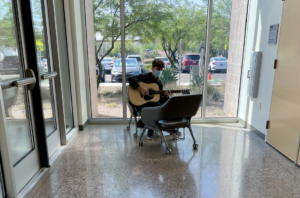Digital Learning Questions

A group of K-12 schools hired a digital learning director tasked with finding the very best school designs, software programs, thinkers on how schools—specifically how to leverage digital learning. Following are some of their questions and a few quick answers. I’m hoping edReformer readers will chime in with some great additions.
What should we be reading (great thinkers, articles)?
iNACOL has a lot of reports worth reading including this one on Blended Learning.
Skim these books:
- Disrupting Class, Clay Christensen, Michael Horn, Curtis Johnson
- The World is Open, Curtis Bonk
- DIY U, Anya Kamenetz (it’s higher ed, but interesting sign of what’s coming)
- Rethinking Education in the age of Technologyh, Collins & Halverson
Follow #EdTech and #BlendedLearning (and @tvanderark) on Twitter.
Read edReformer and watch for weekly reports from Digital Learning Council—a policy development effort sponsored by Excel in Ed to advance online and blended learning. Check out the edReformer blogroll for lots of great contributions.
What schools should we be visiting?
Visit these traditional schools that mix technology and project based learning
- High Tech High: 9 k-12 schools in San Diego
- New Tech Network: 62 schools using common project-based platform
- Denver School of Science and Technology: soon to be 5 schools in Denver
Visit these blended schools
- Rocketship: 3 blended elementary schools in San Jose
- NYC iSchool: blend of problem-based and online test prep
- School of One: a blended 6th grade math program in 3 middle schools
- San Francisco Flex Academy: K-12 curriculum in blended format
- VOISE: APEX content used as digital texts in Chicago school
- KIPP has a blended elementary pilot in LA
What technologies should we be exploring?
Access devices are cheap enough (<$250/yr TCO), that I’d recommend that you ditch textbooks and invest in a 1:1 environment at least grades 5-12.
I like the iPad but it doesn’t run Flash, so netbooks are probably the best bet for this school year. Check resolution requirements on your favorite digital content before you buy. Several competing tablets that run Flash will be introduced later in the school year. I worry about speed and ease of typing on tablets because I want kids to be producers not just consumers—something to watch over the next two years.
And no need to worry about a server room at school, you should be able to run everything you need from the cloud (unless you’re tied to an old student information system).
What software should we be exploring?
The first decision is whether and to what extent you adopt a comprehensive online provider. Apex, Connections, Florida Virtual, K12 and others offer a full catalog of online courses that you can usually license (or, in some cases, purchase) with or without instructional services. Most online learning offerings are not much better than digital textbooks—flat and sequential content. I don’t see current providers investing heavily in second generation adaptive object libraries until demand matures.
For an existing high school, start by requiring all students to take at least one online course every semester. Convert all AP courses to online; expand your offerings and save a little money.
While full course offerings are a bit disappointing, there is enough adaptive and engaging content to assemble an interesting component model. On math:
- Dreambox is is a K-3 adaptive math product worth watching and ReasoningMind looks like a sound middle grade adaptive product
- Carnegie Learning and Agile Mind are both well researched and comprehensive
- Hippocampus is an open math and science high school curriculum
- MangaHigh has great free middle grade math games
- MathXL and Khan Academy are great tutorial products
What kind of platform should we use?
This is a big open question. There are a few Web 1.5 learning management systems out there (Fronter, Agilix, iQ-ity) but none are prepared for big libraries of adaptive content with embedded assessment. And the market hasn’t developed a standards-based framework for rationalizing feedback from a variety of sources.
I’m intrigued with the potential of queuing content from a social learning platform like Edmodo (an Revolution company) but haven’t figured out the data backend.
What conferences should we be going to?
I find EdNet pretty productive; the next one is September 26 in Boston. The best edtech conference is usually FETC, held in January in Orlando.
Who should we be talking to?
City Prep is a blended learning service provider (that I lead) that helps nonprofits and districts create great secondary schools. We have a growing bi-coastal team of experts.




0 Comments
Leave a Comment
Your email address will not be published. All fields are required.